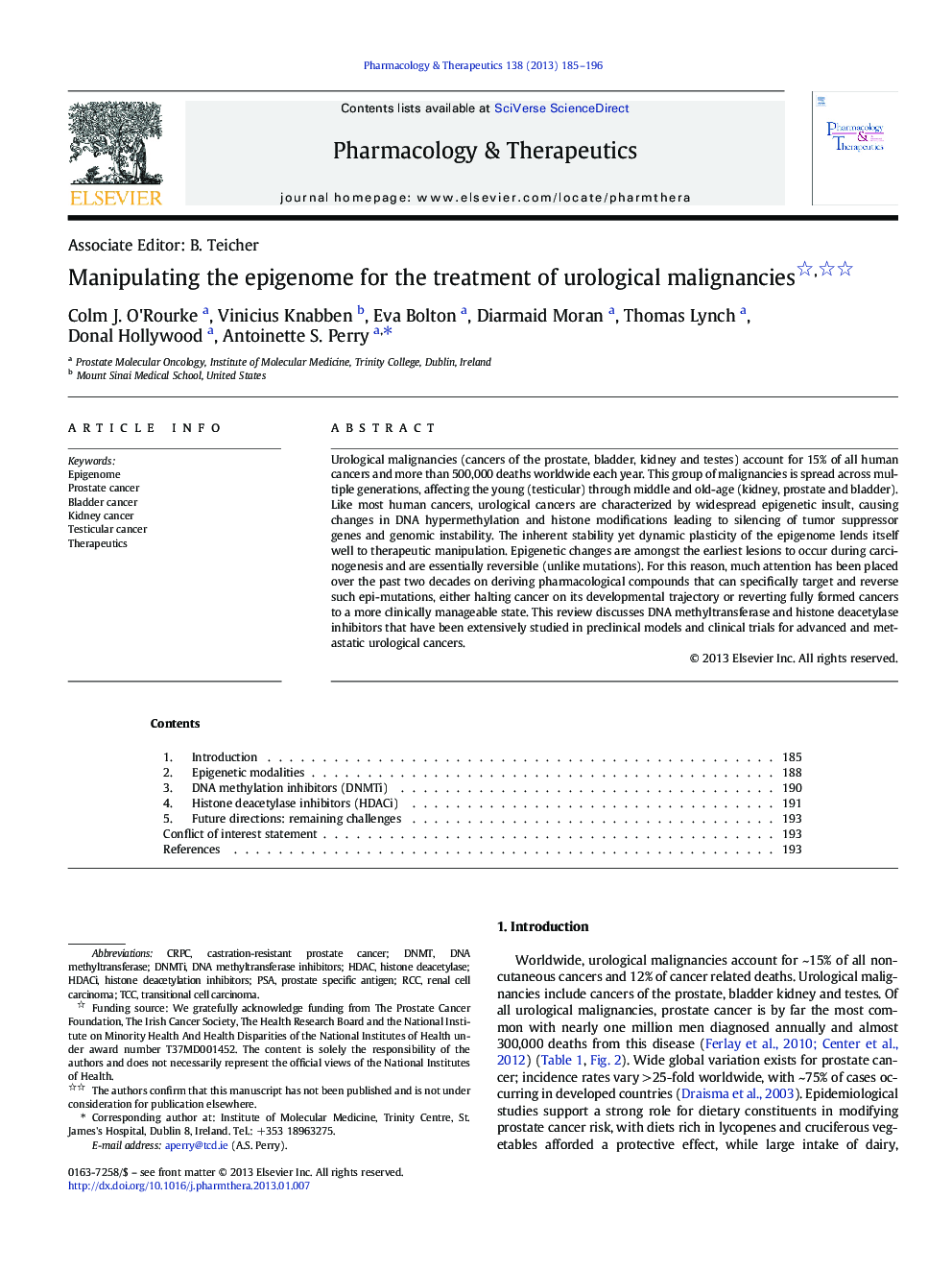| Article ID | Journal | Published Year | Pages | File Type |
|---|---|---|---|---|
| 2563316 | Pharmacology & Therapeutics | 2013 | 12 Pages |
Urological malignancies (cancers of the prostate, bladder, kidney and testes) account for 15% of all human cancers and more than 500,000 deaths worldwide each year. This group of malignancies is spread across multiple generations, affecting the young (testicular) through middle and old-age (kidney, prostate and bladder). Like most human cancers, urological cancers are characterized by widespread epigenetic insult, causing changes in DNA hypermethylation and histone modifications leading to silencing of tumor suppressor genes and genomic instability. The inherent stability yet dynamic plasticity of the epigenome lends itself well to therapeutic manipulation. Epigenetic changes are amongst the earliest lesions to occur during carcinogenesis and are essentially reversible (unlike mutations). For this reason, much attention has been placed over the past two decades on deriving pharmacological compounds that can specifically target and reverse such epi-mutations, either halting cancer on its developmental trajectory or reverting fully formed cancers to a more clinically manageable state. This review discusses DNA methyltransferase and histone deacetylase inhibitors that have been extensively studied in preclinical models and clinical trials for advanced and metastatic urological cancers.
